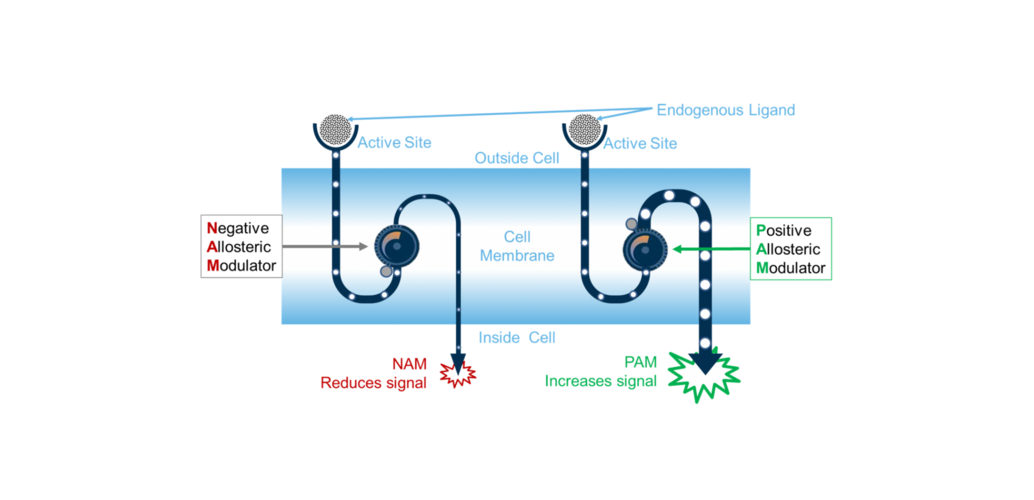Allosteric modulation
Allosteric modulators are an emerging class of orally available small molecule therapeutic agents that may offer a competitive advantage over classical drugs.

This potential stems from their ability to offer greater selectivity and better modulatory control at disease mediating receptors. Most marketed drugs bind receptors where the body’s own natural molecular activators (i.e. endogenous ligands) bind, specifically to a key part of each receptor’s anatomy called the “active site”. In short, most drugs must out-compete endogenous ligands in order to bind to the active site.
By contrast, allosteric modulators are non-competitive because they bind receptors at a different site and modify receptor function even if the endogenous ligand also is binding. Because of this, allosteric modulators are not limited to simply turning a receptor on or off, the way most drugs are. Instead, they act more like a dimmer switch, offering control over the intensity of activation, while allowing the body to retain its natural control over initiating receptor activation.
